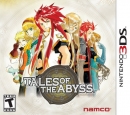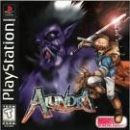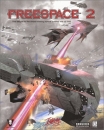Mnementh said:
So you are the author of that article? It is somewhat confusing, as here you have a nick, but the article is signed with your name. Probably it would help, if the articles also include the nick.
The mechanics IS the same as experience points: you make some achievements (kill foes) to increase the abilities of your character. It is hard to differentiate between stats associated with the character itself and stats associated with something external. The effect on the gameplay is the same. The only difference I can make out is, that you can change a weapon or armor in monster hunter, while you usually cannot change your character stats. But that's not true for alle games, some allow relearning skills...
Yeah, that's why my definition is about the control the player has over the development of the abilities of your character(s). That's a main difference. In Zelda you always have the same items at the same point in the game. Yes, you can omit heart containers, but that has only low influence on the abilities, the other effects are stronger.
I only played a little God of War (the first) and wasn't much impressed, so I never played really much of it. How much does this customization of weapons influence Kratos? Does he really gets different with weapon customization? Are there different paths for customizing the weapons, or only 'better'?
How do you think about Pandora's Tower? As said, it has experience points and levels, and the stats go up if you level up. But you really have no influence about it. If you play the game a second time, it is the same Aeron. Maybe you have not fought so much monsters in between, so you are a level short the second time you face a certain boss, but overall there is no real difference. Your definition makes it clearly an RPVG. My definition not. And it doesn't feel as one for me, as the control over the char is the in my opinion the main point in the pen&paper RPGs. Also some pen&papers have no mechanic like experience points. But they are RPGs all the same. You create your character and sit at a table with friends and do crazy stuff. The XP-mechanic is common, but not the only way to develop the char.
|
I am indeed the article writer. I apologize for the confusion but since gamrConnect and gamrReview are now separate entities it doesn't make a ton of sense for my forum nick to make an appearance on gamrReview.
You're right that the end result is the same whether you are getting increased stats or better equipment, and it's largely an arbitrary distinction, but I make it because it helps to define the genre in a way I find acceptable and doesn't include highly variant and off the wall games such as God of War.
To me player choice is secondary because it gets used in so many other genres. Adventure games often have a large amount of player choice throughout so it would be difficult to make a distinction between something like Heavy Rain where your choices dictate which characters remain alive throughout the story and skyrim or Fallout since both have a lot of player choice in their gameplay mechanics.
It doesn't make a massive effect, no. But that means you have to define between areas of grey like "which of these games has an acceptable amount of character development through the game to be an RPG, which is a situation I did my best to avoid.
Yes I'd call Pandora's Tower an RPG even though you don't have any choices throughout the leveling process. I'd suggest that since you can craft and change your equipment that it fits your definition as well. I realize that my definition for RPG doesn't work for the table top iterations but I'm only trying to define the term as it pertains to video games.
...
































































